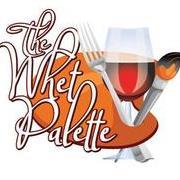-
Welcome to the eG Forums, a service of the eGullet Society for Culinary Arts & Letters. The Society is a 501(c)3 not-for-profit organization dedicated to the advancement of the culinary arts. These advertising-free forums are provided free of charge through donations from Society members. Anyone may read the forums, but to post you must create a free account.
California Dish
-
Similar Content
-
- 10 replies
- 2,905 views
-
- 0 replies
- 1,026 views
-
- 4 replies
- 2,262 views
-
- 41 replies
- 15,609 views
-
- 1 reply
- 2,482 views
-
-
Recently Browsing 0 members
- No registered users viewing this page.



Recommended Posts